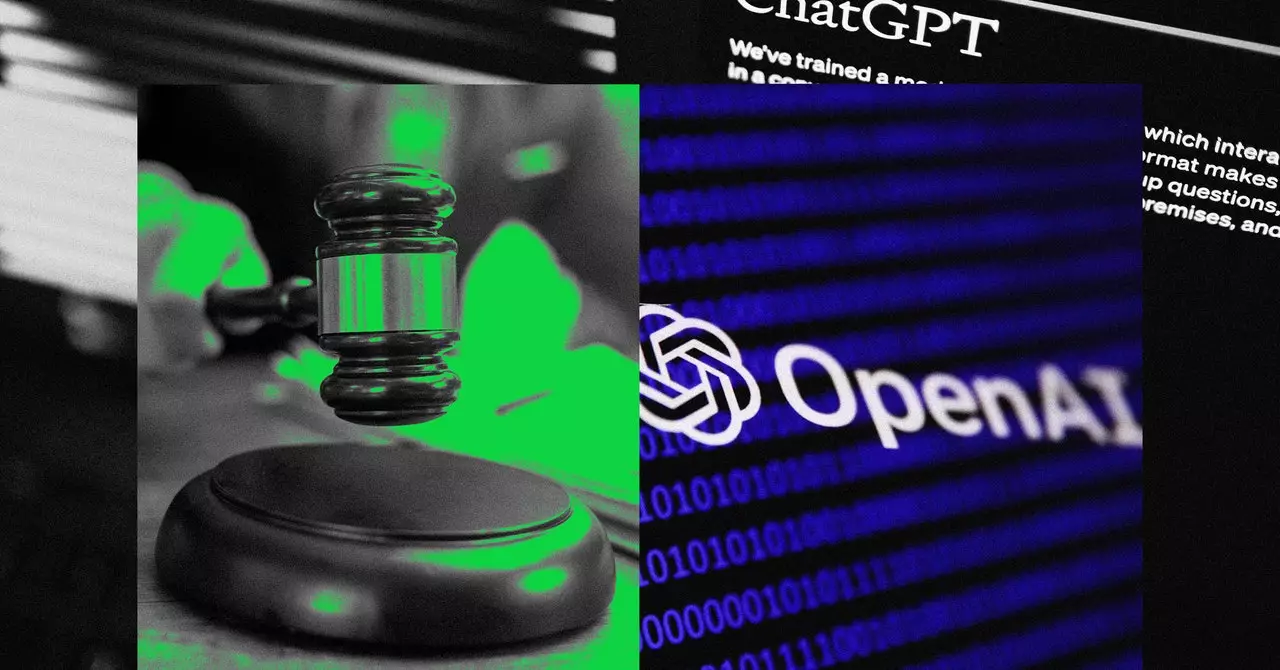In the ever-evolving landscape of artificial intelligence (AI) and copyright law, recent legal battles have sparked significant debate among practitioners, scholars, and technology developers. The use of copyrighted material to train AI models raises essential questions around intellectual property rights, the implications of the Digital Millennium Copyright Act (DMCA), and the adequacy of existing legal frameworks to address these contemporary challenges.
A recent set of legal cases involving prominent organizations such as The Intercept and the nonprofit newsroom Center for Investigative Reporting has spotlighted the friction between AI companies like OpenAI and traditional media outlets. The core of the dispute lies in whether these organizations possess the legal standing to claim that their content was mishandled under the DMCA.
According to legal representatives involved, there is a prevailing sentiment that current DMCA claims are constitutionally valid. However, experts like Matthew Sag, a law professor specializing in AI, argue that the claims lack substantiation. He suggests that the plaintiffs have not provided concrete evidence showcasing how their copyrighted works were infringed upon, particularly in instances where AI models allegedly replicated their articles. This apparent lack of tangible examples indicates a gap in the plaintiffs’ ability to prove their case, which may significantly influence the courts’ rulings.
The Demand for Evidence: What Constitutes Proof of Infringement?
In the eyes of intellectual property lawyer Ann G. Fort, the burden of proof lies heavily on the plaintiffs. For the case to gain traction, it is imperative that the news outlets present clear and precise instances of how AI-generated outputs mirror their original articles. This highlights a fundamental challenge in legal proceedings involving AI—disentangling the complexities of machine-generated content from the original works.
The significance of providing evidence cannot be overstated. In a prior case involving The Intercept, OpenAI successfully argued for a motion to dismiss based on similar grounds of standing. However, following this dismissal, the plaintiffs were permitted to fortify their claims with extensive exhibits, revealing how OpenAI’s models could potentially generate almost identical snippets to those in their articles. This juxtaposition underscores the necessity for diligent documentation in copyright disputes, particularly within the realm of AI.
The dismissive ruling by the courts not only scrutinizes the DMCA claims but also raises questions about broader legal theories surrounding copyright infringement. Judge McMahon’s assertion that the real concern is not merely the use of Center for Media and Information (CMI) in training data but rather the alleged unauthorized benefits derived from the plaintiffs’ content marks a crucial turning point. This suggests that the courts are approaching these cases with a nuanced understanding of the interplay between technology and traditional copyright law.
Moreover, the observation that there may be alternative legal routes still awaiting exploration hints at the potential for future litigation to redefine how copyright is interpreted in the digital age. Legal scholar James Grimmelmann equates this lack of standing as a foundational shift—an “earthquake” that could resonate well beyond the confines of AI, prompting a reevaluation of legal principles that have long governed intellectual property rights.
As technology and media continue to intertwine, the emergence of AI-driven innovations will undoubtedly strain existing legal frameworks. Stakeholders—from developers to publishers—must adapt to navigate this complex legal terrain effectively. The recent rulings underscore the necessity for clearer guidelines and a robust legal framework capable of addressing the unique challenges posed by AI.
The intersection of copyright law and artificial intelligence remains a contentious and evolving battleground. As legal professionals and institutions grapple with these issues, it becomes increasingly clear that a comprehensive interpretation of copyright that acknowledges the nuances of AI-generated content is crucial. The legal landscape surrounding AI will surely continue to evolve, giving rise to new definitions, standards, and potentially transformative implications for copyright law and its enforcement.

